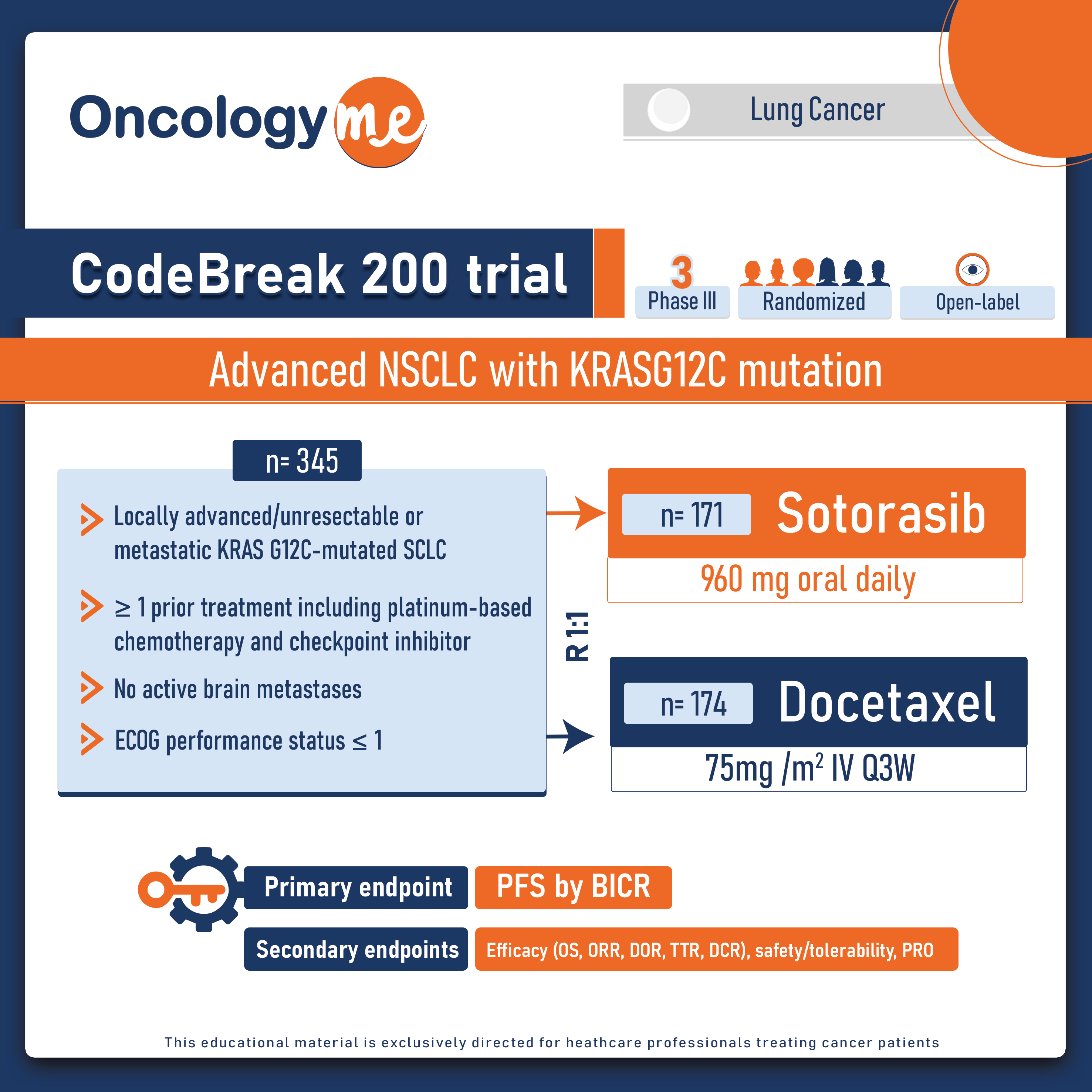In the randomised, phase 3 CodeBreak 200 trial, #sotorasib showed a substantial improvement in progression-free survival and a better safety profile when compared to docetaxel in patients with advanced #NSCLC with KRASG12C mutation who had received prior other anticancer treatment.
In this open-label trial, 345 eligible patients with KRASG12C-mutated advanced NSCLC, who progressed after previous platinum-based chemotherapy and a PD-1 or PD-L1 inhibitor were randomly assigned (1:1) patients to oral sotorasib (960 mg once daily) or intravenous docetaxel (75 mg/m2 once every 3 weeks). Treatment continued till disease progression or death.
Key exclusion criteria included new or symptomatic or progressing brain lesions, presence of known oncogenic driver mutation other than KRASG12C, prior treatment with docetaxel (neoadjuvant or adjuvant docetaxel was allowed if the tumour did not progress within 6 months after the therapy was terminated), previous treatment with a direct KRASG12C inhibitor, receiving systemic anticancer therapy within 28 days before the study, and undergoing therapeutic or palliative radiation therapy within 2 weeks prior to starting treatment. The primary endpoint was PFS. Secondary end points included OS, ORR, safety.
After a median follow-up of 17·7 months,Sotorasib significantly improved the PFS compared to docetaxel, median PFS was 5·6 months in the sotorasib arm vs 4·5 months with docetacel; HR=0·66; p=0·0017. 12-month PFS rate was 24.8% and 10.1% respectively.
Although sotorasib had better objective response rate (28.1% vs 13.2%, P < 0.001), and disease control rate (82.5% vs 60.3%) and Tumor shrinkage (80% vs 63%), Median overall survival wasnot improved by sotorasib (10.6 months vs 11.3 months, HR = 1.01, P = 0.53). the trial was not powered to detect statistical significance and cross over was allowed.
Sotorasib was well tolerated, with fewer grade 3 or more and serious treatment-related adverse events compared with docetaxel. For sotorasib, the most common treatment-related adverse events of grade 3 or worse were diarrhoea (12%) and elevated LFTs (ALT increase 8% and AST 5%). For docetaxel, the most common treatment-related adverse events of grade 3 or more were neutropenia (9%), fatigue (6%), and febrile neutropenia (5%).

.png)